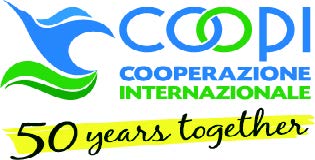King Jaffer is the royal tribal leader of Abu Dam village, located in Um Baru locality in North Darfur. King Jaffer is 51 years, with 10 children – 3 girls and 7 boys. He tells us how he gained his title through family lineage; his ancestors before him were part of the royal family in Abu Dam village in Um Baru locality for the last 200 years.
“I am the King of Abu Dam. Once my great grandfather was the original King of our village. Now the responsibility is mine, and one day, it will be my son’s.” He goes on to tell us that the most important part of being a leader is ensuring the peace and safety of his people, particularly as they live in areas that are constantly prone to outbreaks of armed conflict. “We have to keep each other safe, we have enough problems outside of our village, we need to stop fighting amongst one another.” Together with the community, King Jaffer created a conflict resolution committee, which he chairs. Any problems in the community are brought forward to the committee, and together with respective male and female representatives from the village, they reach a fair and reasonable conclusion to issues raised.
IOM Sudan’s Rapid Response Fund (RRF) is a fast-acting funding mechanism supported by USAID/OFDA, providing swift responses to critical needs of vulnerable, newly displaced people. Cooperazione Internazionale (COOPI) appealed to IOM’s RRF program in order to address the critical needs of the newly displaced people gathered in Abu Dam area, who as a result of armed conflicts, had seen the arrival of 7,722 displaced people; 65 per cent of them children and 26 per cent women.
Abu Dam’s source of drinking water was a single existing borehole, providing dirty water, which would often lead to water-borne sickness. COOPI rehabilitated the borehole, upgrading it to a Mini Water Yard, thus providing the displaced people gathered in Abu Dam and its surrounding areas with 15 litres of clean, safe drinking water per person, per day, for personal consumption.
Furthermore, COOPI conducted 90 hygiene awareness raising campaigns, promoting healthy water handling and hygienic practices. To promote sustainability, COOPI set up a water committee in the village and trained them on the operation and management of the water yard. This proved to be one of the most successful components of the project.
Unconventionally, in King Jaffer’s village, it is the men who go daily to collect the water. The distance for water collection was so far that it would not allow the women enough time to collect water and conduct other daily tasks. The daily journey, including queuing, used to take 12 hours to fill up 12 containers of water, to be used for household purposes, as well as feeding cattle. Women used to take breaks every 3 hours or so, in order to rest and regain energy for the long journey ahead.
King Jaffer and his committee had decided that water collection would be the responsibility of the men instead, in order to relieve the pressure on the women, who used to continue to perform domestic tasks after their daily collection of water. Water is now available immediately as COOPI has constructed water points across the entire village, allowing both men and women to collect water easily. King Jaffer tells us the difference the clean water has made.
“Before the wells and water points, we used to drink water which had animal waste in it. We used to get sick, but the sickness became the norm. Everyone always complained about their stomachs. This was life.”
King Jaffer tells us how pleased the village is, now that they have a regular, stable, and most importantly, clean water supply. He says that the training provided by COOPI on the maintenance and rehabilitation of hand pumps and motorized water points was the most beneficial aspect. The committee decided to set up a training group comprised of those who were trained by COOPI, to then continue providing the training for the rest of the village. He proudly announces that now all the adults in the village, both male and female, have been trained on hand pump and motorized borehole rehabilitation.
“We do not want to go back to the water struggle and shortages we had before. This is why it is important that everyone knows how to use and fix these hand pumps; it is the whole village’s responsibility, and we all want clean water.”
On behalf of his village, King Jaffer extends his thanks to USAID/OFDA, IOM and COOPI for their dedicated efforts in providing lifesaving assistance to his people.
“Allah has said, if you give thanks, you will receive back. Our water is now as clean as bottled water and it comes straight from the tanks, and we don’t have to buy it like people in Khartoum,” he chuckles.

